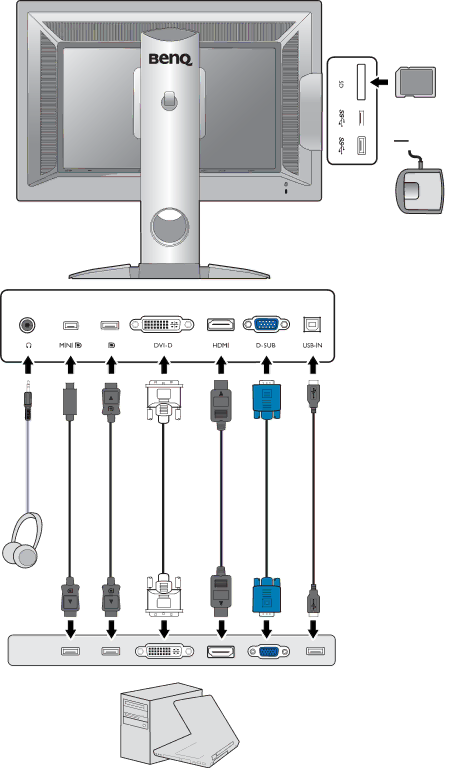
Connection
The following connection illustrations are for your reference only. For cables that are not supplied with your product, you can purchase them separately.
For detailed connection methods, see page 11 - 13.
SD card
![]()
![]()
![]() USB peripherals
USB peripherals
Colorimeter
Headphone
![]()
![]() PC/Notebook
PC/Notebook
Getting to know your monitor | 9 |